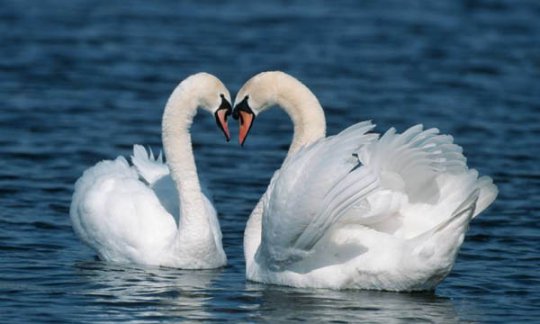What does it mean for you to love?
 If you and I love each other – and we mean the same thing – we successfully answered what love is.
If you and I love each other – and we mean the same thing – we successfully answered what love is.
However, when considering the situation with 3 and 4 positions, such self-sufficiency may not be enough. How long can loving each other keep love? How useful and effective will their love be for their children, for the society in which they live? And by the way, if we start to disagree on love – how can we find a common opinion? In short, with all the individuality and diversity of love, it makes sense to speculate about it theoretically.
In my “picture of the world,” the understanding of love went through many transformations. At first it was a youthful romantic construction of the object of love in the cult of the deity and a complete knightly self-sacrificing service to it. When the “sacrifice”, initially flattered by such worship, was annoying, she began to tear the knight away from herself, like a piece of sticky patch and then avoid it in every way. The defeated admirer went to write melancholy poems and “perform many feats” so that the stupid lady would understand what treasure she overlooked and threw out and wrung her hands in sobs. And legs.
Now I understand such a riot of feelings as a perverse manifestation of love more for myself than for a “beautiful lady.” The subtext is approximately the following: “Look, love, and the whole world, look what a model I am, the best love in the world, loving by the most correct rules! Be happy that I love you, and delightfully answer me in return. And if you don’t, I, shining even brighter, will make another happy — and you will die of envy and repeated elbow bites. ”
With age, views, thank God, have changed. I gradually came to the alignment of positions, spent a long time in the “rehearsals” under the motto “You are a beautiful girl, we have a very good time together, but it’s not she — that same amazing love.” Then came the amazing love he was looking for, and a long family life with many turns, and balancing on the edge of the abyss, and rethinking. Views and principles have evolved and changed – I want to believe that for the better.
Now the main change I make with myself is the transfer of love from the category of equal to the category of disinterested. Before me, in order to love someone, reciprocity was subconsciously important (preferably equal). If you reject my love – I feel pain, grief, often – indignation (when I find out who I prefer …). And my love for you begins to subside. Love that did not receive reciprocity payment gradually (or quickly) faded away. It is quite normal, modern favorable understanding of love for millions of people. It (which means I myself, who divided it) led me to the edge. Balanced. Passed Thought about the reasons.
Now I learn to love people differently – without self-interest. In my opinion, just the presence or absence of “self-interest” in actions is the key difference between love and dislike. I am not saying that mutually beneficial cooperation, equal market relations is bad. This is very good, just love can go with mutually beneficial cooperation in parallel – and improve it. Or maybe not go – these are different processes. Family and marriage – cooperation. Love – can decorate it and make it better and more efficient.
I liked the definition of N.I. Kozlova, which he gives at the training “Personal Life”: “Love is a responsible behavior.” Responsible behavior is, of course, not all love, but an important and integral part of it. I would add joyful care to this definition. The manifestation of warm disinterested care distinguishes love from other manifestations of responsible behavior. I remember the old Russian version: instead of “loves” they used to say “sorry”. It is very significant for Russian culture, which, in my opinion, is more inclined to the maternal model of love.
Well, it is important, in my opinion, that the person himself realizes that what happens to him is love. Remember the definition of feeling as a living metaphor of kinesthetics moving inside a person ↑ – here too. If a person evaluates his condition as a state of love – he loves. If he believes that with him is just a sunstroke or food poisoning – he does not like. The standard of our inner feelings in a state of love is not (except for fiction) – there is nothing to compare with, you have to create on your own.
Then I propose to discuss the following definition:
Love is responsible behavior in the form of joyful selfless care,
perceived by man as love.
If a woman cooks food for you in a very high quality and responsible manner, she does the dishes and cleans the house, demonstrating responsible behavior, care and attention – and gets paid for it – she just works as a housekeeper for you. If this woman responsibly and joyfully takes care of you disinterestedly and considers it as love – this is love. About the man think up for yourself.




